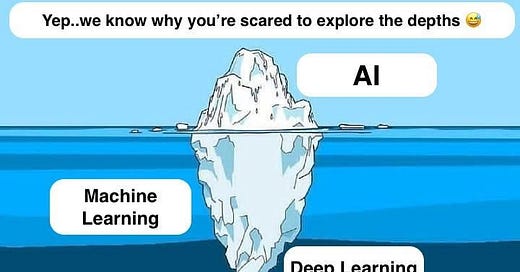The Model Context Protocol: A Web3 Game-Changer for Data Privacy and Personalization
Or at least the potential I see in it
Imagine a world where your AI assistant isn't just a clever parlor trick, but a powerful tool that can seamlessly interact with all your data sources, from Google Drive, Notion, Airtable to blockchain networks. This is Model Context Protocol (MCP), an open standard developed by Anthropic, the first step of AI development standardization. In this post, we are going to talk about the opportunities this brings to the Web 3 world combined with programable cryptography.
What is MCP?
MCP is like a universal plug for AI models, allowing them to connect with any data source or tool without needing custom integrations for each one. It's a client-server architecture where AI applications (clients) can access various data sources (servers) through a standardized protocol. This means no more juggling multiple APIs or custom wrappers; just configure MCP once, and your AI can "see" all registered connectors.
MCP in Web3
As MCP enables AI to access diverse data sources, ensuring this access is secure and compliant with privacy regulations becomes a significant challenge. This is where technologies like Fully Homomorphic Encryption (FHE) can play a vital role in safeguarding data during interactions. FHE allows computations to be performed directly on encrypted data, ensuring that sensitive information remains protected throughout processing, transmission, and storage. FHE is crucial for maintaining data privacy in decentralized environments. It enables AI models to process encrypted data without decryption, preventing potential data breaches and misuse. Multi-Party Computation (MPC): Enables multiple parties to compute a function over their private inputs without revealing those inputs to each other. MPC distributes trust across multiple parties, reducing reliance on a single entity for data security and computation, which complements MCP's goal of decentralized AI interactions. Also, MPC allows multiple parties to collaborate on computations without sharing sensitive data, which can be streamlined by MCP's standardized interfaces for AI integration. Another great tool we can use to enhance data privacy while accelerating hyperpersonalization is ZK. Zero Knowledge Proof enables the verification of information without revealing the underlying data. This technology enhances privacy by allowing users to prove statements about their data without exposing it. FHE, ZKPs, and MCP Together: This combination offers a robust framework for secure and private AI interactions in Web3. FHE ensures data remains encrypted during processing, ZKPs verify information without data exposure, and MCP streamlines AI access to diverse data sources.
The Promise
User Control: These technologies empower users to decide how their data is used, ensuring privacy and preventing misuse.
Data Value: By securely processing data, users can unlock its full value without compromising privacy, creating new economic opportunities in Web3.
By combining MPC with MCP, AI assistants can access and process data from multiple parties securely, providing personalized services without compromising privacy. FHE ensures that data remains encrypted during processing, while ZKPs verify transactions without exposing underlying data.
The Model Context Protocol represents a significant opportunity for Web3, particularly in the realms of data privacy and personalization. By empowering users to control their data while leveraging AI's capabilities, MCP aligns perfectly with Web3's vision of a decentralized internet where users are in charge.
As we move forward, the integration of MCP with technologies like FHE will be crucial in ensuring that AI interactions are not only efficient but also secure and private. This combination has the potential to revolutionize how we think about data ownership and AI personalization, creating a future where technology serves users without compromising their rights.
In a world where data is increasingly valuable, MCP should offer a way to unlock value while keeping control in the hands of users. Can be a step toward a more equitable digital landscape, where AI enhances our lives without undermining our privacy. As we embrace this future, one thing is clear: MCP is not just a protocol; it's a blueprint for a more personalized, secure, and user-centric internet.




